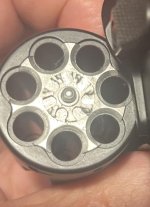I hate to say it but very few US manufacturers have learned the lesson the auto industry learned back in the 70's, 80's and 90's when the Japanese imports the Big Three used to laugh at started eating their lunch and dinner too. After their defeat in WWII, the Japanese economy and industry was in shambles and they struggled to get back on their feet by producing cheaply made items that became called Japanese junk, because it was. An American by the name of Dr. Deming was brought in. The lesson he taught was that quality didn't cost, it paid. The money spent to ensure a product was flawless helped the manufacture to gain customers instead of loose them. The Japanese not only ran with the idea, they helped refine it to empower each worker to stop the work flow if he/she discovered a flaw. They would examine the flaw, decide what caused it, then fix the cause so it couldn't happen again. The results were soon Japanese cars began to attract buyers because they developed a reputation for quality, cost and economy - both in the delivered price as well as operating costs. The Big Three nearly went under before they succeeded in mending their ways. Still, they lost so much market share, they will never be the powerhouses they once were.
Much of the remaining US industry still is operating under the old ways. While the firearms industry has foreign competition, most of it remains in the semi-auto sector and fortunately, those are easily enough produced so that competition from outside the US, at least after we got over the "Glock-Shock" is nowhere near the boogie man the Japanese had become to the Big 3.
Revolvers are different matter however. The US remains the largest manufacturer and consumer of wheel guns in the world. Outside of a small segment of producers of historic relics and the rather handsomely priced Korth, there really is no competition other than what resides in the US. And since the market is relatively small, there isn't a huge incentive for manufacturers to spend the money training workers and then paying them high wages/benefits to retain them in order to make the changes needed to increase the quality of the end product. On top of that, wheel guns are far more labor intensive to make, therefore more costly. It is doubtful we will see much improvement in the coming years, especially when corporate leaders are profiteers rather than enthusiasts.
That's $.02 on it!



